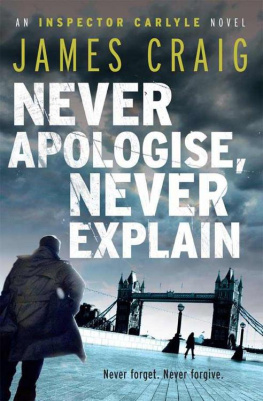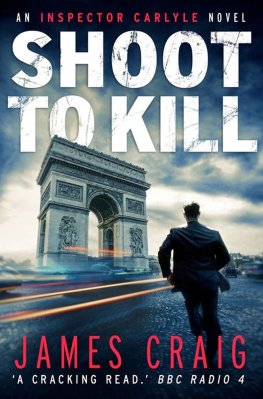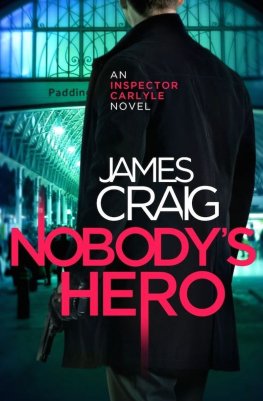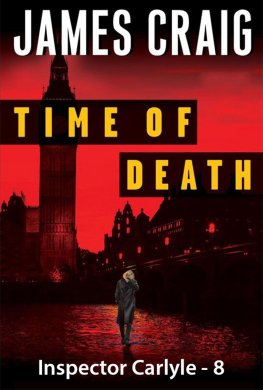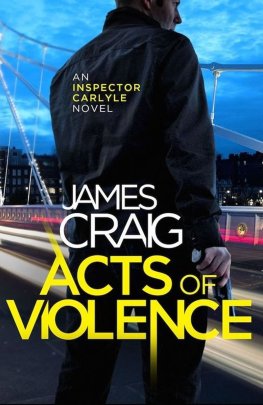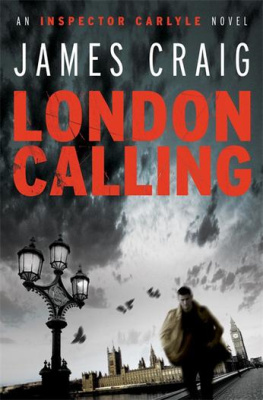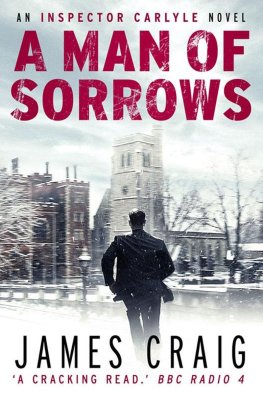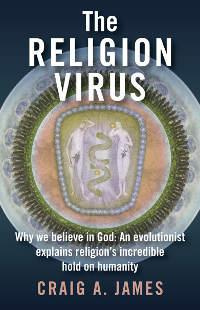James Craig - Never Apologise, Never Explain
Here you can read online James Craig - Never Apologise, Never Explain full text of the book (entire story) in english for free. Download pdf and epub, get meaning, cover and reviews about this ebook. year: 2012, publisher: Robinson, genre: Detective and thriller. Description of the work, (preface) as well as reviews are available. Best literature library LitArk.com created for fans of good reading and offers a wide selection of genres:
Romance novel
Science fiction
Adventure
Detective
Science
History
Home and family
Prose
Art
Politics
Computer
Non-fiction
Religion
Business
Children
Humor
Choose a favorite category and find really read worthwhile books. Enjoy immersion in the world of imagination, feel the emotions of the characters or learn something new for yourself, make an fascinating discovery.
- Book:Never Apologise, Never Explain
- Author:
- Publisher:Robinson
- Genre:
- Year:2012
- Rating:3 / 5
- Favourites:Add to favourites
- Your mark:
- 60
- 1
- 2
- 3
- 4
- 5
Never Apologise, Never Explain: summary, description and annotation
We offer to read an annotation, description, summary or preface (depends on what the author of the book "Never Apologise, Never Explain" wrote himself). If you haven't found the necessary information about the book — write in the comments, we will try to find it.
Never Apologise, Never Explain — read online for free the complete book (whole text) full work
Below is the text of the book, divided by pages. System saving the place of the last page read, allows you to conveniently read the book "Never Apologise, Never Explain" online for free, without having to search again every time where you left off. Put a bookmark, and you can go to the page where you finished reading at any time.
Font size:
Interval:
Bookmark:
James Craig has worked in London as a journalist and consultant for almost thirty years. He lives in Covent Garden with his family. His first Inspector Carlyle novel, London Calling, is also available from Constable & Robinson.
For more information visit www.james-craig.co.uk , or follow him on Twitter: @byjamescraig.
Also by James Craig
London Calling

Constable & Robinson Ltd
55-56 Russell Square
London WC1B 4HP
www.constablerobinson.com
First published in the UK by Robinson,
an imprint of Constable & Robinson Ltd, 2012
Copyright James Craig 2012
The right of James Craig to be identified as the author of this work has been asserted by him in accordance with the Copyright, Designs and Patents Act 1988
This is a work of fiction. Names, characters, places and incidents are either the product of the authors imagination or are used fictitiously, and any resemblance to real persons, living or dead, or to actual events or locales is entirely coincidental
All rights reserved. This book is sold subject to the condition that it shall not, by way of trade or otherwise, be lent, re-sold, hired out or otherwise circulated in any form of binding or cover other than that in which it is published and without a similar condition including this condition being imposed on the subsequent purchaser
A copy of the British Library Cataloguing in
Publication data is available from the British Library
ISBN 978-1-84901-584-4 (paperback)
ISBN 978-1-84901-782-4 (ebook)
Typeset by TW Typesetting, Plymouth, Devon
Printed and bound in the UK
1 3 5 7 9 10 8 6 4 2
ACKNOWLEDGEMENTS
This is the second Carlyle novel. After publishing the first ( London Calling ), I started paying more attention to Acknowledgements pages in other books. Having looked through more than a few now, I have to conclude that I am getting a lot more help than other writers. Either that or they are being rather parsimonious with their thanks.
For my part, I have to say a sincere thank you to many people. They include: Polly James, Paul Ridley, Michael Doggart, Luke Speed, Andrea von Schilling, Celso F. Lopez and Peter Lavery. Thanks as well go to crime fiction guru Richard Jacques and everyone at Brunswick, and to Mary Dubberly and all the staff at Waterstones in Covent Garden.
Particular mention has to go to Chris McVeigh and Beth McFarland, digital media experts at 451 for all their help in promoting John Carlyle online. And, of course, nothing would have come of any of this without the efforts of Krystyna Green, Rob Nichols, Martin Palmer, Eryl Humphrey Jones, Emily Burns and all of the team at Constable.
Above all, however, I thank Catherine and Cate who continue to put up with all of this book stuff when I should have been doing other things. This book, and all the others, is for them.
CONTENTS
ONE
Finding himself once again locked out of the Parker House hostel, Walter Poonoosamy, the drunk known as Dog, walked round the corner, into Drury Lane and headed north. His destination was the warren of streets around the British Museum. A tourist magnet, the area boasted plenty of all-you-can-eat restaurants, so the pickings were usually good.
Big Ben could just be heard chiming one oclock as Dog turned into Great Russell Street. At this time of night the street was empty, just the way he liked it. He eyed the black refuse sacks that had been left out on the pavement, waiting for collection by Camdens heroic bin men. The mornings first collection truck would be along at around 7 a.m.; by then, most of the sacks would have been opened, and the rubbish strewn up and down the street. Dog knew from bitter experience that it was the early dosser that got the leftovers. Hunger was poking through his inebriation and he had to get in quick before the competition for the street buffet the dossers from Tottenham Court Road and Russell Square turned up. Now was the prime time to forage for leftover food, clothes and whatever other useful bits and pieces the locals had thrown away.
After considering various options, Dog stepped up to a collection of refuse sacks piled by a street lamp on the east side of the street, outside an Indian restaurant called Sitaaray. Pulling a Stanley knife out of his jacket pocket, he bent down and carefully slit open the nearest bag. A couple of minutes of careful rummaging yielded some decent leftovers: lamb shaami and chicken masala, as well as a couple of peshwari naan. As a meal, it was better than anything that he would have got at the hostel, and would go perfectly with the remains of the two-litre bottle of Diamond White cider that he had saved from earlier in the day. Checking up and down the road to make sure that no one had spied upon his good fortune, Dog gave a silent prayer of thanks for the citys endless bounty before retreating into the darkness of a nearby alleyway at the rear of a huge block of mansion flats to set about his feast.
TWO
Still dressed, unable to sleep, Agatha Mills stood at her living-room window and gazed out at the floodlit splendour of the British Museum. The view was the best thing about the flat, especially at night; she often spent time contemplating its Ionic columns and the sculptures on the pediment over the main entrance, depicting The Progress of Civilisation .
Progress indeed, Agatha thought sadly, shaking her head.
This view had been the thing that had made her fall in love with the flat when they had first seen it, almost forty years ago. She had badgered Henry to pay the asking price immediately, even though they couldnt afford it. He had been very grumpy about it at the time, something that still made her smile, even now. Over the years, however, as it became clear that the flat was the one sound financial investment theyd made in their entire lives, her husband had relented and graciously accepted that she had been right.
For Agatha, however, their joy in Great Russell Street had always been tinged with sadness. From that first visit, she had dreamed of taking her own children down the stairs, across the road and into the Museum. She had daydreamed of picnics in the courtyard, lost afternoons spent among the Egyptian mummies or the Roman treasures. If, at the time, she had known that there would be no children, she would have felt utterly crushed. Even now, there was a sharp stab of regret that she knew would never go away.
However, a stoical pragmatism ruled the Mills household: you have to live with your regrets and they had done so. Life went on. They had found other things to occupy their time and their emotions. Sometimes she wondered if Henry was as disappointed as she was being a man, after all but ultimately that didnt matter. They werent having some kind of competition to see who could wear more of their heart on their sleeve.
She thought of him now, asleep in their double bed and smiled. He was a good man who had taken on her struggles and made them his own. Over the years she had realised that he was a truly remarkable companion and she was lucky to have him.
A movement in the street below caught her eye. Stepping closer to the window, she gazed down on a tramp going through the rubbish, looking for something to eat, or maybe some discarded clothing. For Agatha, at her window at this time of night, it was a fairly common sight and no longer elicited much of a response other than the gentle voyeuristic thrill of spying on another human being going about their business. Having spent much of her life working in poorer countries, she was used to human scavenging. Indeed, she had seen much worse than London had to offer. Here, however, Agatha had found that she was less sympathetic to the plight of others. Maybe it was just that she was getting older, but she wondered if it was the city making her harder.
Next pageFont size:
Interval:
Bookmark:
Similar books «Never Apologise, Never Explain»
Look at similar books to Never Apologise, Never Explain. We have selected literature similar in name and meaning in the hope of providing readers with more options to find new, interesting, not yet read works.
Discussion, reviews of the book Never Apologise, Never Explain and just readers' own opinions. Leave your comments, write what you think about the work, its meaning or the main characters. Specify what exactly you liked and what you didn't like, and why you think so.

